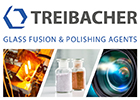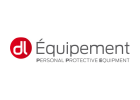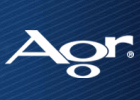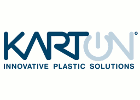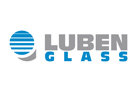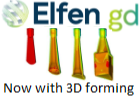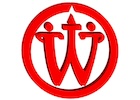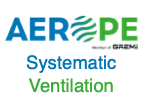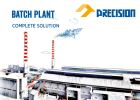Coming from the world’s leading industry players and academic centres, over 60 speakers will present their research on core inkjet technologies during TheIJC (The Inkjet Conference) on 29-30th October 2019 at Crowne Plaza Düsseldorf. Several hundreds of developers, innovators and decision makers are expected to join the event to peer into the future of digital printing and assess its impact on various manufacturing processes.
“TheIJC has established itself as the focal point for learning and discussion between all those who want to make global connections and share thoughts on inkjet innovation. Each year hundreds of participants leave the conference with a head full of ideas, new partnerships and a complete technology update,” says Peter Buttiens, CEO of ESMA (European Specialist Printing Manufacturers Association), organiser of the event.
“Within the community that meets at TheIJC we look at a chain of events: the core technology, the integration, the equipment and the market application. Each development or evolution in the core technology is assessed against the application and the market requirements. Some core technology developments will revolutionise the application, whilst the same core technology development will be irrelevant in another market. With over 60 presentations, the conference covers all areas and explores the links between them,” says Steve Knight, Director of Digital Direct Technologies, co-organiser of TheIJC.
The conference programme opens with plenary sessions with state-of-the-art insights from all major printhead manufacturers. Afterwards topics from hardware, software, vision systems, ink and curing, innovation and research are presented on three parallel tracks. The first confirmed titles include (technical details and further information for all other presenters will be added nearer the time):
On Plenary Sessions (printhead architecture):
- “Make printhead jettability wider” by Guillaume Guinot, Seiko Instruments
- “Making the most of Konica Minolta’s compact inkjet printhead technology” by Paddy O’Hara, Industrial Inkjet
On Track One (hardware and software):
- “A system’s approach to creating high quality output: The importance of an Image Quality System” by Joshua Howard, Kodak
- “Powerdrop: Taking pressure off the ink by jetting materials that add function” by Dr Dan Mace, Archipelago
- “Tips, tools and techniques for printhead waveform optimisation” by Matthew Pullen, Meteor Inkjet
- “Understanding and optimising screeners” by Phil Collins, Global Inkjet Systems
On Track Two (inkjet fluids, analysis and curing):
- “Formulating UV inkjet inks for a variety of industrial applications” by Rita Torfs, Agfa
- “Inks for MEMS printheads: Challenges and opportunities” by Sarah Canning, Fujifilm Ink Solutions
- “Innovative formulation additives to improve your inkjet inks” by Peter Bene, BASF
- “LED curable inkjet ink design: The balancing act” by Dr Pradeep Koyadan, AT Inks
- “New developments in print quality characterisation” by Dr Christian Schöttle, Dataphysics
- “Optimum drying for inkjet processes” by Dr Kai K.O. Bär, Adphos
- “Particle sizing: An overview of myths and misconceptions about particle size” by Dr Larry Unger, Entegris/Soliton
- “Printhead coating for use of chemical aggressive inks and binders, dissolved oxygen and total gas measurement in printing inks” by Dr Alexander Wannewetsch, UMS
- “Promoting curing speed: Ideal surfactants for LED curing inkjet inks” by Dr Vedran Durasevic, Evonik
- “What are the important physico-chemical parameters when formulating inks and how to characterise and optimise them” by Dr Thomas Willers, Krüss
- “What's new in UV LED” by Alan Mills, Phoseon
On Track Three (inkjet research and innovation for chosen market applications):
- “Aerodynamics of direct-to-shape printing” by Dr Maria Cristina Rodriguez Rivero from University of Cambridge
- “Benefits and challenges of digital printing for printed electronics” by Dr Kerstin Gläser, Hahn-Schickard Society
- “Effects of ink, substrate and target line width on the line quality printed using a materials inkjet printer” by Mihir Choudhari from Rochester Institute of Technology
- “Flow induced damage and chemistry within printing flow systems” by Dr Niamh Fox from University of Cambridge
- “Fully inkjet-printed, air stable OLEDs for signage and packaging applications” by Patrick Barkowski, Inuru
- “Inkjet 3D printing: High resolution and multi-material digital manufacturing” by Marin Steenackers from ChemStream
- “Robot guided functional inkjet printing on non-planar surfaces for electronic applications” by Robert Thalheim from Fraunhofer ENAS
- “Tolerances in industrial inkjet printing of μ-electronic device components” by Kalyan Yoti Mitra from Fraunhofer ENAS
The current list of presenting and exhibiting companies includes: 3M, Adphos, Agfa, Allnex, Amazon Filters, Archipelago Technology, Arcolor, BYK, BASF Colors & Effects, BASF Personal Care & Nutrition, ChemStream, Clariant, ColorGATE, DataPhysics, Digital Direct, Dr. Hoenle, DSM, DuPont Advanced Printing, Evonik, Formulaction, Fraunhofer ENAS, Fujifilm Dimatix, Fujifilm Imaging Colorants, Global Graphics, Global Inkjet Systems, Hahn-Schickard-Gesellschaft, Hamamatsu, Hapa, Heraeus, ImageXpert, Industrial Inkjet, Integration Technology Limited, Inuru, iPrint, Kao Collins, KNF, Kodak, Krüss, Lambda Technology, Lubrizol, Marabu, Megnajet, Memjet, Meteor Inkjet, Nazdar, Notion Systems, NTS Group, Pall, Phoseon, Rex-Tone, Ricoh, Rochester Institute of Technology, Seiko Instruments, Soliton, Sun Chemical, Toshiba Tec, Trijet, UMS, University of Cambridge, Ushio, VKT and Xaar.




